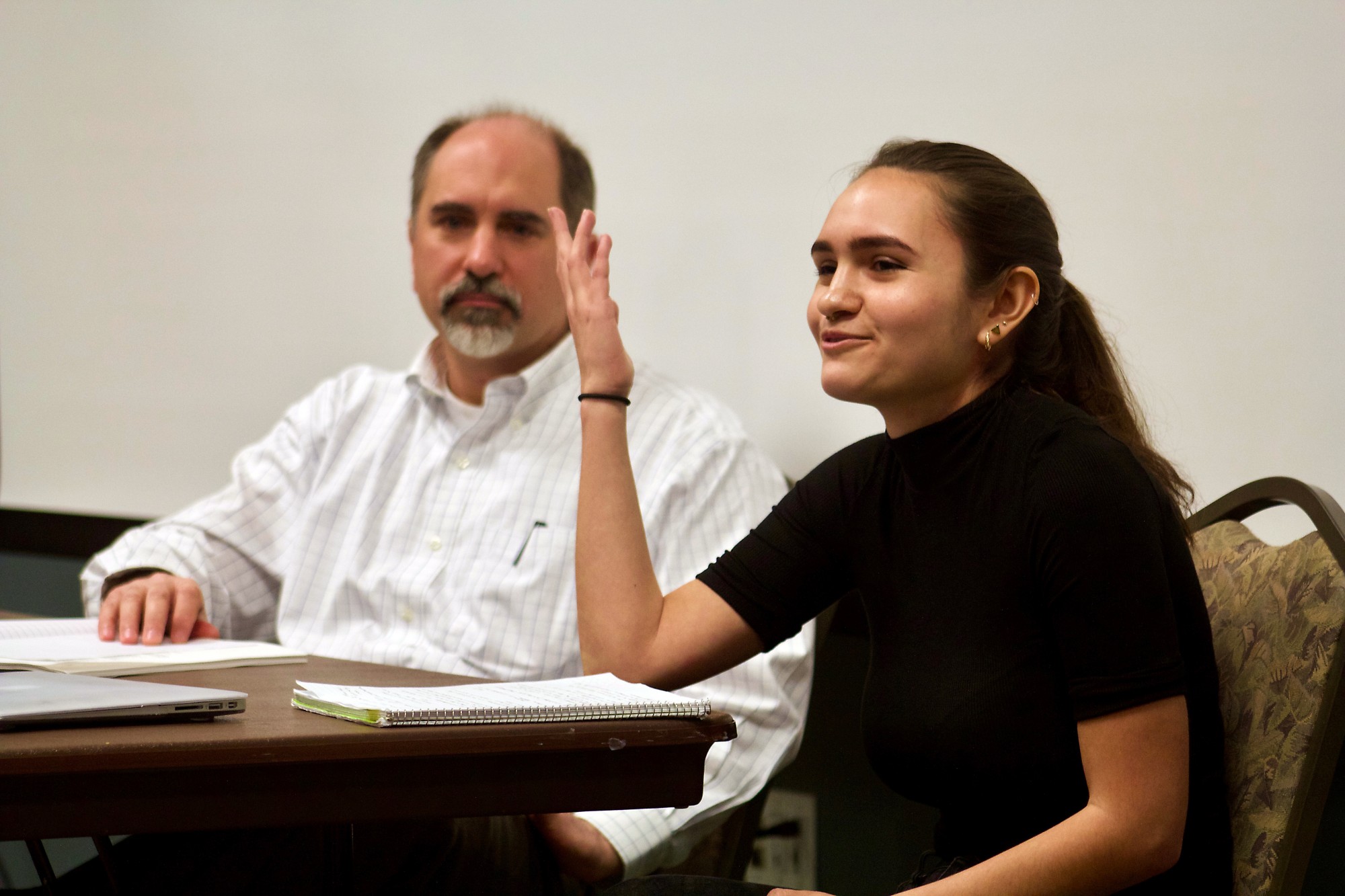Graduate Student Government Chief of Staff Caden Fabbi pays $1,015 each month, not including utility costs, for his off-campus apartment space in Campus Gardens. Andrea Muñoz Beaty, president of Co-op Housing University of Maryland, pays more than $400 per month for a single bedroom in a local house.
While the cost of rent in College Park varies, 19 University of Maryland students and faculty members, as well as other College Park residents, agreed on one thing at a affordable housing town hall meeting Thursday: the city needs to improve and expand its affordable housing options for this university’s students.
After complaints from graduate students and assistants about problems with finding affordable housing, the GSG hosted three panelists in Stamp Student Union, who each presented national and local context to the affordable housing issue that has affected students.
[Read more: UMD graduate students are frustrated with high rents and a lack of housing options]
County officials feel students already have the most affordable housing in the area compared to surrounding cities such as Fairfax and Arlington, said Eric Olson, the executive director of College Park City-University Partnership and one of the panelists.
“A lot of elected officials in Prince George’s County say there is already a lot of affordable housing,” Olson said. “So that’s not something that they’re necessarily going to focus on.”
When Olson served on the College Park City Council, he brought in affordable housing developers in an attempt to address the issue, which also stemmed from high land costs that have since been fixed, he said.
CHUM is a group that aims to provides affordable housing and community through shared chores and events and is one of many solutions to create affordable housing, said Beaty, another panelist. CHUM rents houses from landlords before renting out the spaces to its members.
The group currently rents six houses in College Park to about 30 students over the academic year and seeks to make options more available and affordable as landlords continue to raise prices, Beaty said.
“Three of our landlords raised the rent by $100 each this year,” Beaty said. “And while single-unit homes, which house five to six people, are relatively affordable, they are very limited.”
This university rents the house from local landlords, and students sign a lease with CHUM to live in the house, according to CHUM’s website. But if the landlord increases rent prices, the students have to pay to keep the home.
[Read more: City Council votes to support deletion of student surcharge exemptions]
Apartment buildings such as The Varsity, Landmark and Terrapin Row, which have been developed in recent years, have high rent and are relatively unaffordable, Beaty said. A four-bedroom Terrapin Row apartment starts at $999 per month, according to its website.
“We’ve had students that have had to drop out because of housing issues and have had to save up so that they can come back to class,” Beaty said.
Panelist David Falk, an adjunct lecturer in the public policy school, said housing is unaffordable for lower-income households as measured by the housing wage. The national average housing wage is the hourly wage a person working 40 hours per week for a year would need to earn to pay 30 percent of income on rent and utilities. That average in the United States is $18.92, Falk said.
“Five hundred to 600 dollars [per month] for rent seems affordable in College Park, but undergraduates are not making $18 an hour, so it’s really not,” Beaty said.
Shayandev Sinha, a member of the GSG housing task force, said affordable housing options must be closer to the campus. The other option is to provide greater access to university transportation for students living in areas traditionally used by graduate students, such as near University Boulevard, he added.
“Bus 111 is the only bus that goes to this area,” Sinha said. “If that bus breaks down, students can’t go class.”
GSG plans to work with CHUM, the Student Government Association and the College Park City-University Partnership to create a strategic plan to advocate for more affordable housing.
“We need to make this a priority for the university administration,” said GSG President Stephanie Cork. “We need to work on actual solutions that aren’t $3,000 for three people in one room.”



